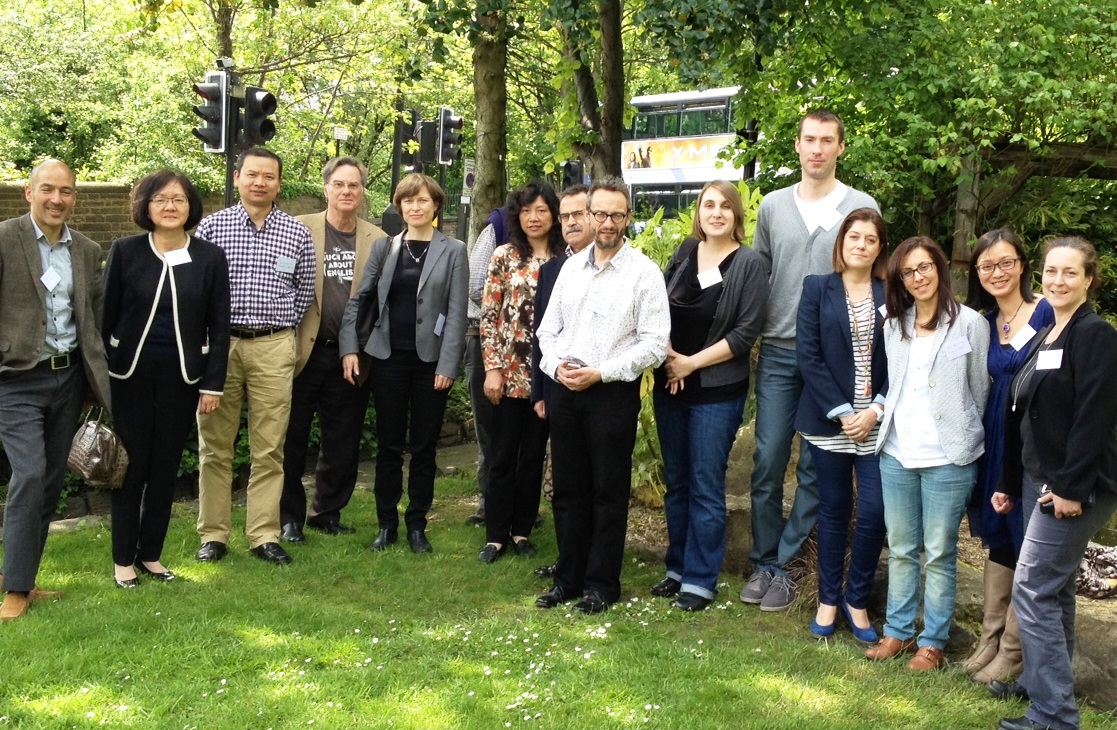
The University of Sheffield has been lead partner on an international network funded by the Leverhulme Trust in the UK. This ran until August 2014 and involved five principal European partners. The project investigated the changing role and changing uses of the English language across Europe in a range of domains of language use. Our ambition is to extend and expand this project by harnessing the strengths of WUN to move the debates beyond the European context.
The global use of English is one of the most dramatic linguistic phenomena of our time. It is based on the somewhat naive assumption that the international community can function unproblematically through the medium of English. Despite some critical responses to this assumption (most prominently in the writings of e.g. Robert Phillipson and Alastair Pennycook), there is little comparative international data to inform language planning and language policy in this area. We therefore seek to bring members of our established network together with WUN partners from beyond Europe to develop a project to investigate the challenges facing language practitioners when operating through the medium of non-native English.
The focus is on the experience of teachers and learners on the one hand, primarily in Higher Education but also in the school system, and translators on the other. Our initial step was to organise a workshop in Sheffield at which partners shared their existing research findings, worked up an international research network to include non-academic partners (from education and from the translation profession) and planned two projects as the basis for funding applications.
English is used throughout the world as the medium for instruction in contexts where English is not the primary national language or even an official language. Within the Worldwide Universities Network, the University of Maastricht, for example, teaches most of its programmes in English. However, only one third of staff and half of the master’s students are from outside the Netherlands. This phenomenon is replicated throughout Europe. What does this mean for the experience of teachers and students alike? Does everyone feel equally enfranchised by this arrangement? Is the experience equally positive across all disciplines? What does this mean for the development of the national and local policies on English as a medium of university-level instruction?
These are questions we addressed as part of the English in Europe: Opportunity or Threat? project. These questions are a particular focus of researchers working in the Centre for Internationalisation and Parallel language Use at the University of Copenhagen and the Centre for Academic English at the University of Stockholm, and indeed English as a challenge for global Higher Education has perhaps been most thoroughly investigated in the context of northern Europe (see, e.g., Kuteeva 2011; Preisler et al. 2011; Hultgren, Gregersen & Thøgersen 2014; Linn & Hadjidemetriou 2014), hence the importance of including these non-WUN partners in discussions from the outset.
The existing project also includes partners from southern and central Europe, and our workshop included members of research groups in the Czech Republic (Charles University) and Spain (Zaragoza). Extending our reach beyond Europe, the specific expertise of Dr Amsler (Auckland), Professor Chun (CUHK) and Dr Meng Ji (UWA) will be invaluable.
The WUN workshop on 16 May 2014 addressed a number of research questions as guiding principles and as bases for subsequent funding bids, including the following: are attitudes to non-native English amongst the student body an impediment to learning and a challenge to the academic authority of those teaching through the medium of non-native English?; are English language services in the institutions represented in this network fit for purpose or does the changing role of English require alternative approaches to language skills training and translation services?; what form of language policy is required to manage the ecology of languages used in international higher education and in the professional field of translation?
WUN has the aim of providing the means to bring together researchers from across the world so that they can together address the major challenges of our time more effectively than if they were working alone. This project addresses probably the most important issue in applied linguistics today, namely the impact of global English as a cornerstone of the internationalization of our universities and of the international research endeavour.
It is only by investigating this phenomenon in a range of international contexts and using researchers with local knowledge as part of a team that we can develop a properly nuanced set of language policies, free from excessive acceptance of the status quo or of excessive objection to the role of English. This project addresses two of WUN’s global challenges. Global Higher Education and Research are fundamentally based on the use of English by those for whom it is not a first language, and research, notably in Scandinavia, has demonstrated that this is not straightforward. Do the challenges and the experiences vary from one region of the world to another? To what extent is Higher Education policy in this regard an international or a local matter? The global challenge of Understanding Cultures depends on how different cultures are communicated to each other (via English as a lingua franca and through translation) and on the experience of understanding the world through foreign languages, and these questions will form part of our development of qualitative research projects to help us understand more fully the ‘unspoken’ issues surrounding the use of English as an international lingua franca.
Selected outcomes
- Hosted two-day workshop at the University of Sheffield to share existing findings, create a forum for early career researchers, develop a network of academic and non-academic partners, and plan two projects as the basis for funding applications.
- Submitted a bid for the project Markets of English to the AHRC for £45K (outcome pending).
- £2 million grant proposal to the Economic and Social Research Council (ESRC) in development.